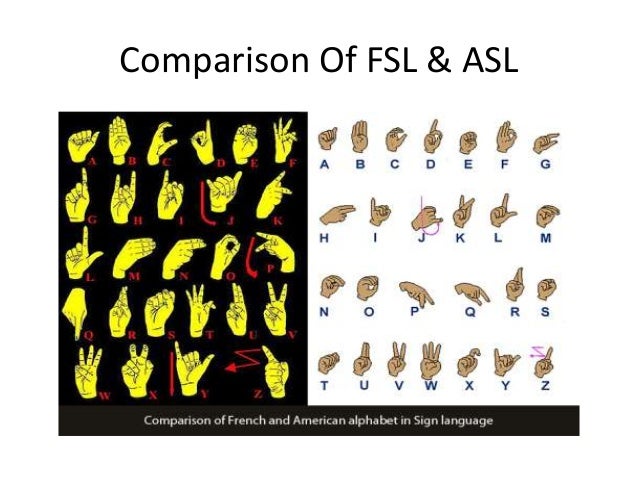
It was in 2006, when I got first involved in deaf community. I started learning sign language during the first quarter of that said year, and still active in the community up to now.
As you go on with your activities in the community, you will learn about deaf people gradually. Getting involved in their community isn't only about knowing and acquiring skills in their own language, rather, entering their world, that is their culture.
Misconceptions
Before studying sign language, I have misconceptions regarding deaf people. Upon my more than a decade in this field, I realized there are a lot of misconceptions towards deaf community that many hearing people has in mind about them. It might be about their language, skills, attitude, and other aspects which affects their way of thinking and life.
Here are some facts that you need to learn about deaf community. For sure, some of your misconceptions would be clarified, and it will change your view about deaf people.
1. Sign language in every country varies
Some hearing people think every language has its own sign language. Actually, each country has its own sign language, i.e., American Sign Language (ASL), Filipino Sign Language (FSL), British Sign Language (BSL), Australian Sign Language (Auslan), etc. There may be different signs from other regions of one country, nevertheless, they represent the same sign language.

2. Not all deaf people knew the standard sign language
Deaf people needs to learn their own language so they can communicate to other deaf people, particularly those who are deaf signers. Besides, interpretation from different events, and sign language interpreter insets on television uses the standard sign language in the country. Here in the Philippines, majority of deaf people never underwent a formal sign language education. Those deaf uses hand gestures or natural signs.
3. Deaf people are used to being deaf
People who are born deaf are used to their condition. It's the kind of life they had grown to, and not all of them has the desire to hear. In fact, some of them doesn't want to use their hearing aids. Deaf people who are active in their community are even proud of their culture.

Other parents undergo their kids with Cochlear implant.
A cochlear implant (CI) is a surgically implanted neuroprosthetic device that provides a sense of sound to a person with severe to profound sensorineural hearing loss. Cochlear implants bypass the normal acoustic hearing process, instead replacing it with electric hearing. Namely, the sound sensation comes from the sound that is converted to electric signals which directly stimulate the auditory nerve. The brain adapts to the new mode of hearing, and eventually can interpret the electric signals as sound and speech.
4. Some deaf people had formal education
Many people believes deaf people as outcasts, and they find it hard to deal with hearing people. Yes, some deaf people may be in such situation. However, many people had formal education even in colleges. There are schools for the deaf, while public schools are gradually establishing special education. Hopefully, there will be more opportunities for deaf people with regards to education.

5. Deaf people do song signs
Hearing people can sing, while deaf people do song signing. It's cool that in some concerts, there are song signers or interpreters as well.
6. Deaf people can communicate with hearing people through gestures
Hearing people can understand natural signs, and deaf people can communicate that way. That's a common communication of a family dealing with deaf family member.
7. Deaf people can acquire employment
There are numerous deaf people who became professionals. Some of them even became teachers, and they're focused on teaching other deaf students. The good news is some companies are now welcoming deaf employees.

8. Some deaf people has different grammar
Other deaf people can understand the standard grammar of hearing people, while many of them in the Philippines follow a deaf syntax. Usually, they use OSV or Object-Subject-Verb.
One example is "How old are you?" which should be signed as "You age, how many?".
Another one is "How are you?" which is more understandable when signed as "How you?" or "You, how?".
9. Deaf people will understand you more with facial expressions
Your facial expression when signing should be accordingly to the word signed. If you signed "Happy", make sure you are smiling. It doesn't matter if your face gets tilted at times. That way, you can easily more understood by deaf people.

10. We need more sign language interpreters
It would be difficult for deaf people to communicate with hearing people who cannot understand sign language. In government services, there is a big need for interpreters so they can avail of services. Even in health care, deaf people needs interpreters to relay the diagnosis, and the needed treatments for them.

11. Deaf people can have a family
I have deaf friends who have a complete family. Some of them have kids with normal hearing, while others may likely have deaf kids as well. Still, they become a productive and happy family.
12. Some deaf people can lip read
Some deaf people can partially hear words, and those are the ones who can read words through the lips.
13. The use of sign names
Calling someone with his name takes time and effort if you are going to spell the name. Deaf people and signers use sign name. Using the first letter of the name, and signed into a part of the face. At times, sign names were based from description or distinguishing marks in the face of the person.

Stop bullying deaf people
I had witnessed how some deaf people are being bullied. As a sympathy, I defended them towards the bullies but some of them didn't bother to listen. That's one of the reasons why other deaf people stopped their schooling because of the scrutiny and mockeries they received from their classmates.

Deaf people are vulnerable to abuse
Parents should watch over their children because of their vulnerability. Abuse can even happen in schools, hence, schools should be aware and watch what happens to the students.
Some parents isolate their deaf children
It's a sad thing that some parents cannot accept that their child is deaf. Hence, they keep them away from people which hinders social life. Deaf people can socialize to their fellow deaf, and even hearing people!
We can unite hearing and deaf people together
Hearing and deaf people can unite. With willingness of hearing people to communicate and associate with them, it can be possible. If sign language (even just the basic signs) be included in the curriculum, unifying hearing and deaf people is very possible. Besides, deaf people are willing to teach sign language once you can communicate with them through basic sign language. In our organization, we're composed of hearing and deaf people. Hopefully, more people would be open to join the sign language community.

Song signing
It was mentioned above that deaf people can do song signing. There are a lot of videos in YouTube when signers do song signs. Most of them are American Sign Language, which was also used by some Filipino signers either deaf or hearing.
Conclusion:
Deaf culture is very interesting. If you want to get involved, there are a lot of deaf people possibly in your community. There are sign language videos on YouTube where you can learn from. There are apps where basic sign languages can be studied. So let's start signing guys!



